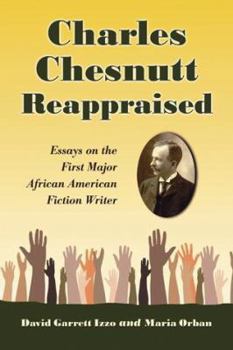Charles Chesnutt Reappraised: Essays on the First Major African American Fiction Writer
One of the best known and most widely read of early African American writers, Charles W. Chesnutt published more than fifty short stories, six novels, two plays, a biography of Frederick Douglass, and countless essays, poems, letters, journals, and speeches. Though he had light skin and was of mixed race, Chesnutt self-identified as a black man, and his writing was often boldly political, openly addressing problems of racial identity and injustice in the late 19th century.
This collection of critical essays reevaluates the Chesnutt legacy, introducing new scholarship reflective of the many facets of his fiction, especially his sophisticated narrative strategies.
Format:Paperback
Language:English
ISBN:0786441119
ISBN13:9780786441112
Release Date:May 2009
Publisher:McFarland & Company
Length:246 Pages
Weight:0.75 lbs.
Dimensions:0.6" x 6.0" x 8.9"
Age Range:18 years and up
Grade Range:Postsecondary and higher
Customer Reviews
0 rating





